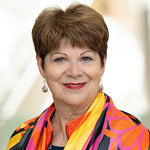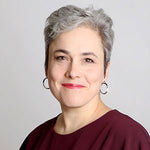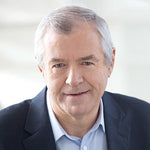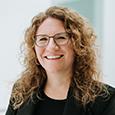
Remaining at the forefront of best practices in organizational development (OD) is critical to supporting and strengthening a company’s ability to endure and embrace change. During this intensive program, you will explore the most recent findings in OD in terms of analysis grids, approaches and hands-on tools that can be used to make a concrete difference in individual, team and organizational effectiveness. Take advantage of this unique opportunity to meet and learn from high-profile experts and thought leaders in this field.
10 OD EXPERTS WEIGH IN ON ISSUES OF STRATEGIC IMPORTANCE.
The successful completion of this program entitles you to a digital certificate. These credentials are trusted, secure, verifiable, and sustainable.

GOALS
Provide an environment where you can learn, think about and share concrete solutions with instructors and other professionals interested and/or involved in organizational development in order to:
- Identify the latest trends in OD.
- Find out what the most effective OD concepts, models, approaches and tools are.
- Improve your ability to analyze situations and make decisions in a constantly changing environment.
- Set up an OD learning community.
IS THIS FOR YOU?
- HR and OD professionals.
- HR experts and specialists.
- Professionals in an advisory role to the Executive Committee.
SPECIAL FEATURES
- Intensive formula: Six days over a 12-week period (every second Friday).
- Theme-based approach that looks at 12 management issues and challenges of interest to those in charge of facilitating and supporting development within their organization.
- Experts in the field to facilitate each theme.
- Assigned reading on best practices in OD.
Certificate issuance is contingent on session attendance and the results of the final exam.
MODULE 1
USING OD TO OVERCOME ORGANIZATIONAL CHALLENGES
- OD as an area of practice: Principles and values
- Three levels of organizational development
- Diagnosis- and dialogue- based approaches
- OD-centric response to organizational challenges
- Key skills to master
MODULE 2
HOW TO DRIVE AND SUPPORT STRATEGIC PLANNING IN YOUR ORGANIZATION
- Usefulness of a structured strategic plan
- Definition of the concepts of strategy, key issues, mission, vision and strategic priorities
- The strategic planning process
- Tools to analyze internal and external environment and identify strategic issues
- Components of an action plan inherent in strategic priorities and the corresponding impacts on budgets and resource allocation
- Challenges related to buy-in and rollout
MODULE 3
HOW TO IDENTIFY AND GROOM HIGH-POTENTIAL EMPLOYEES
- Emergence and critical analysis of the concept of talent
- Methods for evaluating potential
- Co-development, coaching, mentoring, cross-training and other development options
- Methods for fast-tracking talent development
- Importance, roles and accountability of leaders in developing talent
- Roadblocks to success for high-potential individuals
MODULE 4
HOW TO IMPROVE TEAM PERFORMANCE
- Factors underlying the success and failure of teamwork
- Team dynamics
- Supporting managers in elevating their team’s performance
- Team-building and team-strengthening tools
MODULE 5
HOW TO HELP LEADERS, MANAGERS AND EMPLOYEES FACE AN ORGANIZATIONAL TRANSFORMATION
- Support during the transition
- Pre-transformation preparation of the organization
- Strategic, systemic, human and operational considerations
- Analysis and support tools designed to facilitate change
MODULE 6
HOW TO WORK TOGETHER TO FIND SOLUTIONS TO COMPLEX PROBLEMS
- Fundamental concepts and paradigms of collaborative leadership
- Keys to successful collaborative leadership
- Overview of strategies and dialogue-based tools: appreciative enquiry, world café, open forum, future search
- Tangible examples of how these elements are applied in an organizational context
- Your role as an initiator, facilitator and enabler when implementing this type of approach in your organization
MODULE 7
HOW TO OPTIMIZE YOUR INFLUENCE OVER DECISION-MAKERS
- OD advisors and power
- Building your professional and personal credibility with clients and executives
- Upward influence tactics
- Making and defending a winning case
- OD business case competition.
MODULE 8
HOW TO BOOST YOUR STAFF'S MOTIVATION
- Concept of engagement
- Creating an engagement-friendly climate
- Spearheading an initiative to improve engagement
- Easing the transition from diagnosis to action
- Engagement drivers: Potential contributions and limitations
MODULE 9
THE KEYS TO DRIVING SUSTAINABLE EMPOYEE ENGAGEMENT
- Different types of engagement
- Engagement targets (organization, work, supervisor)
- Methods of sparking and sustaining engagement
- Generational differences
- Securing employee loyalty from one generation to the next: Effective tools for managers
MODULE 10
HOW TO CREATE A STIMULATING, HEALTHY WORK ENVIRONMENT
- Workplace health and wellness
- Structure and sense of purpose
- Work/life balance — where the two worlds collide
- Fun and enjoyment on the job
MODULE 11
HOW TO CHOOSE THE MOST SUITABLE OD METHODS
- Reasons why some OD efforts fail
- Criteria for choosing the best method
- Plan for a successful OD operation
- Overview of the various OD methods available
- Your role as an OD advisor
MODULE 12
HOW TO BUILD A COLLABORATIVE CULTURE
- Collaboration-related needs, principles, barriers and issues
- Analysis of the status quo and ideal outcome with regard to collaboration
- Collaboration-friendly tools in your OD toolbox
- What leaders can do and say to encourage collaboration
TRAINING APPROACH
- Reading materials and presentations by experts in the field
- Pooling of participants’ experiences
- Sharing of in-house practices
- Discussions and case studies
ADDITIONNAL INFORMATION
- 1 to 2 hours of reading for every day of training.
- Plan 1 full day of exam prep.
- 2 hours of tutoring included to help you get ready for the exam.
- Certification exam: 10 min oral presentation + 20 min Q&A with examiners.
PROGRAM EDUCATIONAL DIRECTOR AND INSTRUCTOR:

INSTRUCTORS:

PCC
Principal and Coach - Leadership & Team Development, Humance et Lord Communication managériale

BBA, MSc (Human Resources), STP, CHRP
Lecturer, HEC Montréal, and Organizational Development Consultant



BA (Communication and Public Relations)
Partner and National Leader, Leadership & Team Development, Humance et Lord Communication managériale

FCHRP, MSc (Management), PhD (Human Resources Management)
Professor emeritus, HEC Montréal




Licence (Psychology), Licence (Labour Studies), PhD (Psychology)
Professor, HEC Montréal
Presentation
Program
Instructors
GOALS
Provide an environment where you can learn, think about and share concrete solutions with instructors and other professionals interested and/or involved in organizational development in order to:
- Identify the latest trends in OD.
- Find out what the most effective OD concepts, models, approaches and tools are.
- Improve your ability to analyze situations and make decisions in a constantly changing environment.
- Set up an OD learning community.
IS THIS FOR YOU?
- HR and OD professionals.
- HR experts and specialists.
- Professionals in an advisory role to the Executive Committee.
SPECIAL FEATURES
- Intensive formula: Six days over a 12-week period (every second Friday).
- Theme-based approach that looks at 12 management issues and challenges of interest to those in charge of facilitating and supporting development within their organization.
- Experts in the field to facilitate each theme.
- Assigned reading on best practices in OD.
Certificate issuance is contingent on session attendance and the results of the final exam.
MODULE 1
USING OD TO OVERCOME ORGANIZATIONAL CHALLENGES
- OD as an area of practice: Principles and values
- Three levels of organizational development
- Diagnosis- and dialogue- based approaches
- OD-centric response to organizational challenges
- Key skills to master
MODULE 2
HOW TO DRIVE AND SUPPORT STRATEGIC PLANNING IN YOUR ORGANIZATION
- Usefulness of a structured strategic plan
- Definition of the concepts of strategy, key issues, mission, vision and strategic priorities
- The strategic planning process
- Tools to analyze internal and external environment and identify strategic issues
- Components of an action plan inherent in strategic priorities and the corresponding impacts on budgets and resource allocation
- Challenges related to buy-in and rollout
MODULE 3
HOW TO IDENTIFY AND GROOM HIGH-POTENTIAL EMPLOYEES
- Emergence and critical analysis of the concept of talent
- Methods for evaluating potential
- Co-development, coaching, mentoring, cross-training and other development options
- Methods for fast-tracking talent development
- Importance, roles and accountability of leaders in developing talent
- Roadblocks to success for high-potential individuals
MODULE 4
HOW TO IMPROVE TEAM PERFORMANCE
- Factors underlying the success and failure of teamwork
- Team dynamics
- Supporting managers in elevating their team’s performance
- Team-building and team-strengthening tools
MODULE 5
HOW TO HELP LEADERS, MANAGERS AND EMPLOYEES FACE AN ORGANIZATIONAL TRANSFORMATION
- Support during the transition
- Pre-transformation preparation of the organization
- Strategic, systemic, human and operational considerations
- Analysis and support tools designed to facilitate change
MODULE 6
HOW TO WORK TOGETHER TO FIND SOLUTIONS TO COMPLEX PROBLEMS
- Fundamental concepts and paradigms of collaborative leadership
- Keys to successful collaborative leadership
- Overview of strategies and dialogue-based tools: appreciative enquiry, world café, open forum, future search
- Tangible examples of how these elements are applied in an organizational context
- Your role as an initiator, facilitator and enabler when implementing this type of approach in your organization
MODULE 7
HOW TO OPTIMIZE YOUR INFLUENCE OVER DECISION-MAKERS
- OD advisors and power
- Building your professional and personal credibility with clients and executives
- Upward influence tactics
- Making and defending a winning case
- OD business case competition.
MODULE 8
HOW TO BOOST YOUR STAFF'S MOTIVATION
- Concept of engagement
- Creating an engagement-friendly climate
- Spearheading an initiative to improve engagement
- Easing the transition from diagnosis to action
- Engagement drivers: Potential contributions and limitations
MODULE 9
THE KEYS TO DRIVING SUSTAINABLE EMPOYEE ENGAGEMENT
- Different types of engagement
- Engagement targets (organization, work, supervisor)
- Methods of sparking and sustaining engagement
- Generational differences
- Securing employee loyalty from one generation to the next: Effective tools for managers
MODULE 10
HOW TO CREATE A STIMULATING, HEALTHY WORK ENVIRONMENT
- Workplace health and wellness
- Structure and sense of purpose
- Work/life balance — where the two worlds collide
- Fun and enjoyment on the job
MODULE 11
HOW TO CHOOSE THE MOST SUITABLE OD METHODS
- Reasons why some OD efforts fail
- Criteria for choosing the best method
- Plan for a successful OD operation
- Overview of the various OD methods available
- Your role as an OD advisor
MODULE 12
HOW TO BUILD A COLLABORATIVE CULTURE
- Collaboration-related needs, principles, barriers and issues
- Analysis of the status quo and ideal outcome with regard to collaboration
- Collaboration-friendly tools in your OD toolbox
- What leaders can do and say to encourage collaboration
TRAINING APPROACH
- Reading materials and presentations by experts in the field
- Pooling of participants’ experiences
- Sharing of in-house practices
- Discussions and case studies
ADDITIONNAL INFORMATION
- 1 to 2 hours of reading for every day of training.
- Plan 1 full day of exam prep.
- 2 hours of tutoring included to help you get ready for the exam.
- Certification exam: 10 min oral presentation + 20 min Q&A with examiners.
PROGRAM EDUCATIONAL DIRECTOR AND INSTRUCTOR:

INSTRUCTORS:

PCC
Principal and Coach - Leadership & Team Development, Humance et Lord Communication managériale

BBA, MSc (Human Resources), STP, CHRP
Lecturer, HEC Montréal, and Organizational Development Consultant



BA (Communication and Public Relations)
Partner and National Leader, Leadership & Team Development, Humance et Lord Communication managériale

FCHRP, MSc (Management), PhD (Human Resources Management)
Professor emeritus, HEC Montréal




Licence (Psychology), Licence (Labour Studies), PhD (Psychology)
Professor, HEC Montréal



